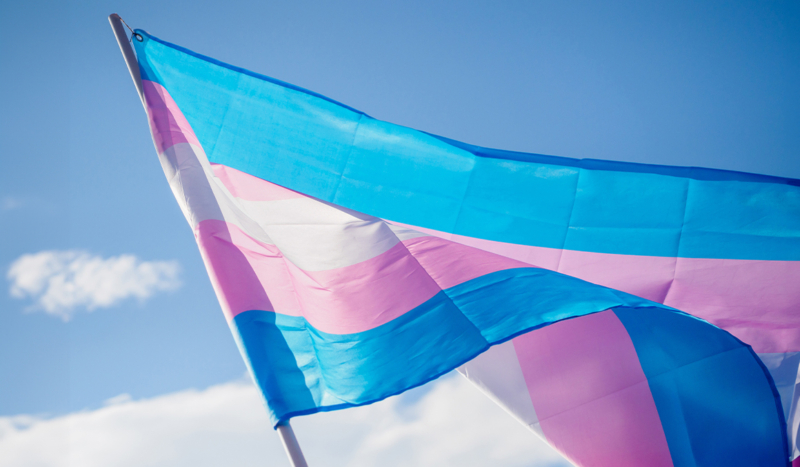
Adobe Stock
CV NEWS FEED // At the Catholic Medical Association (CMA) 93rd annual educational conference in Orlando this month, a panel of women and one man shared their regrets about undergoing “gender-affirming care” that caused them irreversible harm. They also noted what was helpful for them in detransitioning.
The September 6 panel, recorded and posted online, featured Laura Becker, Daisy Strongin, Luka Hines, and Nick. (Nick’s last name was not provided during the panel.) Each of the women were prescribed testosterone and underwent a double mastectomy, and Nick was on cross-sex hormones for two years.
Each of the panelists, who are now between 20 and 30 years old, said they wished that they had received competent medical care and that somebody had questioned their reasons for desiring to be the opposite sex.
Becker explained that her psychiatrist had written her primary letter of recommendation for her double mastectomy and told the doctors that she was “of sound mind.”
Looking back, Becker isn’t sure why the psychiatrist believed that.
“I was suicidal when I was seeing her,” she said. ”I was not even showering on a regular basis or able to function from day to day.”
According to Becker, this psychiatrist was the person who could have made a big difference in her case.
She noted:
She was the primary person who had the opportunity to say, “Hey Laura, You know you have a lot going on, you have an Autism diagnosis, chronic suicide ideation, you’re abusing substances, you have trauma from childhood abuse, and a lot of relational issues, and you know, do you want to take a look at some of those first and do less invasive options?”
The other women on the panel echoed Becker’s story, as they both said they had experienced abuse or trauma in their lives prior to transitioning. Their psychologists did not explore their other issues and instead quickly encouraged them to embrace a transgender identity.
Hines said that she was approved for a double mastectomy when she was just 15, and her breasts were removed before she even started testosterone. She said what she really needed was trauma-informed mental health care, but instead she received “a path of affirmation that not only cemented my trans identity into reality for much longer than it needed to be but also led to immediate physical harm via medical interventions.”
Strongin had jokingly mused that “being Amish for a month,” instead of spending much of her time on social media, would have helped her work through her gender dysphoria. She would have hated “living on a farm and doing manual labor every day for a month with no electricity,” but she thinks that doing something hands-on would have helped her “not think about my own insecurities” and avoid “obsessing over” gender ideology.
“Unironically, something that was very helpful was kind of what Daisy said. I would just go places with no cell service and do a little bit of manual labor,” Hines remarked.
Hines said that reframing what she] thought a woman “had to be” helped her realize that she was, in fact, a woman.
“The only thing I had ever needed to be a woman was to wake up every day as an adult human female and from then anything else is up to me,” she said, contrasting that idea with the trans community’s “really strict gender roles.”
Becker said she detransitioned when she realized that she was not a male, but a traumatized girl, and that identifying as a male wouldn’t help her heal.
“No one wants to be an abused girl, a neglected girl,” Becker said.
Instead, she found healing by connecting with other traumatized women who were seeking healing. Receiving help from a therapist “who actually understood,” was also integral to her recovery.
Becker said this therapist told her: “Yes, you’re [a] traumatized woman. You’re also a really cool woman. You’re smart. You’re funny. You’re an artist. You’re a writer. There’s a lot of good things about you and we’re going to work on bringing more of that out” as well as focus on healing what had been hurt.
Strongin and Nick both said that Catholicism was part of their journey towards embracing their respective biological sexes. Nick embraced Catholicism as he was de-transitioning, and now he studies the Bible with the hope of teaching Scriptures.
Strongin said that as she was exploring Christianity, she thought about trying to convert while maintaining her trans identity, but added, “I never really felt peace with being both.”
She said that if she accepted and believed in God, she also had to accept that He gave her a female gender. Strongin thought that continuing to identify as a man was “basically saying no to that constantly.”
Strongin also said a growing desire to become a mother helped her embrace her female identity. Even when she was identifying as a man, she wanted children and thought about how that would be possible. She came to realize that her God-given body would allow her to become pregnant. She is now married and has a child.
CMA members Drs. Patrick Hunter and Carla Falco hosted the panel. The panelists’ full remarks can be found here.

